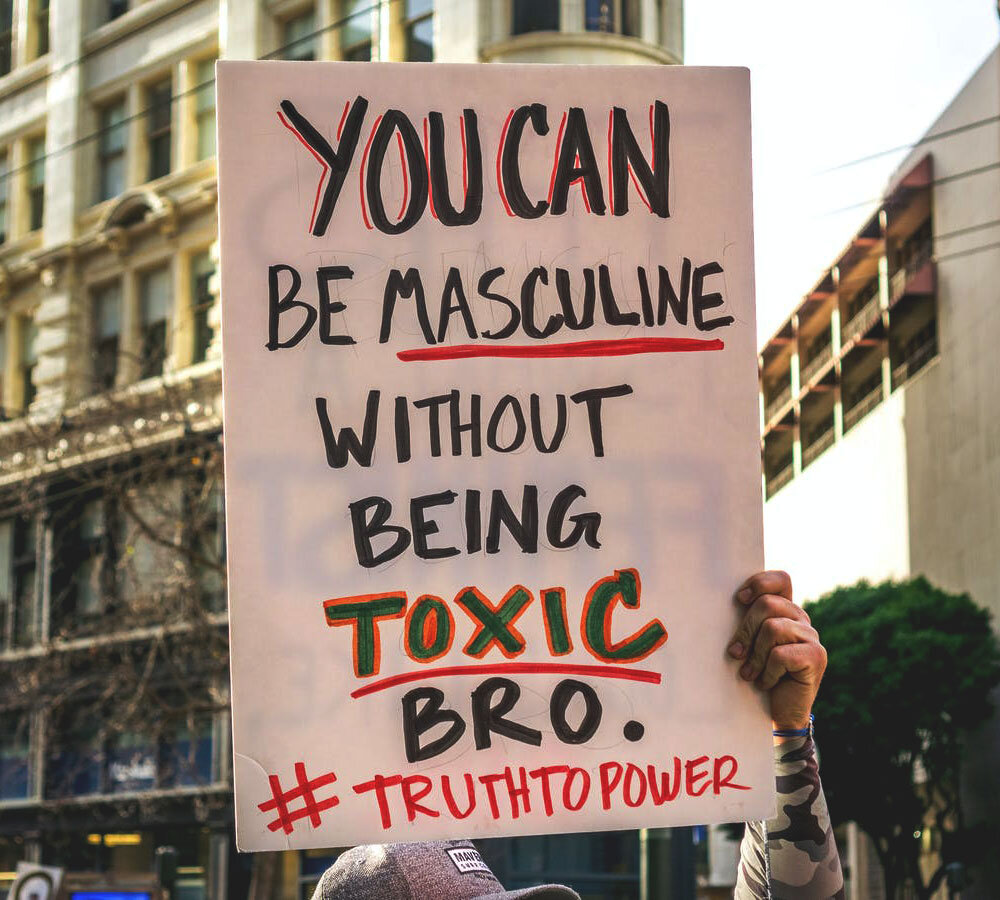Why Don’t We Use the Phrase Toxic Masculinity?
Photo by Sundry Photography
By Jonathon Reed
This is an excerpt from Raising Next Gen Men, our online course on the theory and practice of engaging with boys and young men on topics like mental health, healthy relationships and positive masculinity.
“That’s why I’m turned off by this whole thing,” an eighth-grader told me in a classroom in 2019. He pressed a hand firmly against his chest. “I’m not toxic.”
Toxic masculinity. You’ve heard it all around you. It’s become increasingly popular in mainstream media in recent years, particularly following the rise of the #MeToo movement. It usually generalizes harmful behaviours of men, and it’s a huge point of debate—some people perceive it to imply that men are toxic, or that there is something inherently wrong with masculinity itself.
This interpretation isn’t surprising considering that many people haven’t had the chance to reflect on the reality of multiple masculinities. If you believe that masculinity is a single thing, whether biological or cultural in origin, it’s understandable that the idea of toxic masculinity could be perceived as an attack on boys or men as a whole.
In 2019, Gillette—a brand that has long aligned itself with stereotypical notions of manhood—released an ad campaign that tackled bullying, sexual harassment, mansplaining and physical violence. “We believe in the best in men, to say the right thing, to act the right way,” it proclaimed. “Some already are, in ways big and small. But some is not enough, because the boys watching today will be the men of tomorrow.”
The campaign received significant backlash online, with many people perceiving the ad’s portrayal of harmful norms of masculinity to be an attack on masculinity itself.
In the midst of the discussion on Gillette’s ad campaign, CBC News approached Next Gen Men to interview a group of our program participants about the ad and about masculinity. Here’s what they had to say.
When given the chance, boys are incredibly thoughtful about masculinity and open to reflecting on what manhood means to them. In order to support their positive development, parents and educators need to have a grounded understanding of what masculinity means beyond a media catchphrase like toxic masculinity.
That’s why we don’t use the phrase toxic masculinity at Next Gen Men.
Do you need to know what language to use to refer to the harmful structures and norms of manhood instead of ‘toxic masculinity’? Are you motivated to hear about the research at the leading edge of the masculinities field, or to know how Next Gen Men’s youth program facilitators respond to boys and young men?
Find out by taking the Raising Next Gen Men online course.
Written by Next Gen Men Program Manager Jonathon Reed as part of Learnings & Unlearnings, a bi-weekly blog reflecting on our experiences working with boys and young men. Subscribe to Future of Masculinity to get Learnings & Unlearnings delivered to your email inbox.

